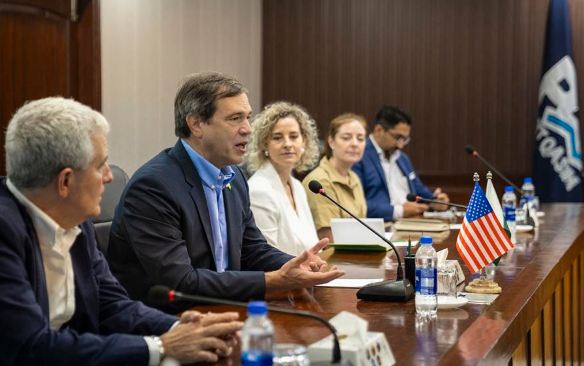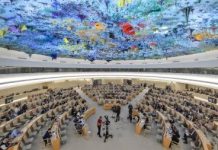KARACHI, /DNA/ – U.S. Deputy Chief of Mission Andrew Schofer’s visit to Karachi September 13-16 underscored the strong partnership between the United States and the people of Sindh. He explored opportunities to enrich development, trade, and commercial ties, and showcased the strength of our people-to-people relationships, the cornerstone of our bilateral relationship.
As co-host of the second Green Shipping roundtable, Mr. Schofer underscored the crucial role of sustainable shipping practices in mitigating the impact of climate change. The Green Shipping roundtable stakeholders discussed opportunities to reduce carbon emissions in the port, shipping, and logistics sectors in Pakistan. Port authorities, industry, and other key actors in the ports and shipping value chain discussed how to promote environmentally friendly and sustainable shipping practices and ways to support the Green Shipping Challenge at COP28.

Mr. Schofer stated, “Through events like the one today, we are encouraging bilateral dialogue on climate action and exploring innovative solutions to strengthen Pakistan’s climate resilience.” He praised the attendees’ commitment and engagement to support a sector-wide transition to more sustainable shipping practices.
The visit included a stop at Lincoln Corner Karachi, where Mr. Schofer met with students, entrepreneurs, and volunteers, applauding their dedication and creativity. He highlighted the significance of youth-led innovation in driving progress and fostering strong U.S.-Pakistan relations.
The Deputy Chief of Mission also underscored the importance of religious tolerance during a meeting with religious minority leaders, reaffirming the United States’ unwavering support for the rights of Pakistani religious minorities.
The visit wrapped up with a visit to Port Qasim. Productive meetings with Port Qasim Authority Chairman Syed Hasan Nasir Shah, and Cargill and Engro Corporation leadership focused on green shipping, port operations, energy solutions, and other innovative approaches aimed at enhancing Pakistan’s trade competitiveness and increasing ways to connect with Pakistan’s largest export market — the United States. The U.S.-Pakistan “Green Alliance” framework was highlighted as a shared commitment to sustainability and climate resilience.












